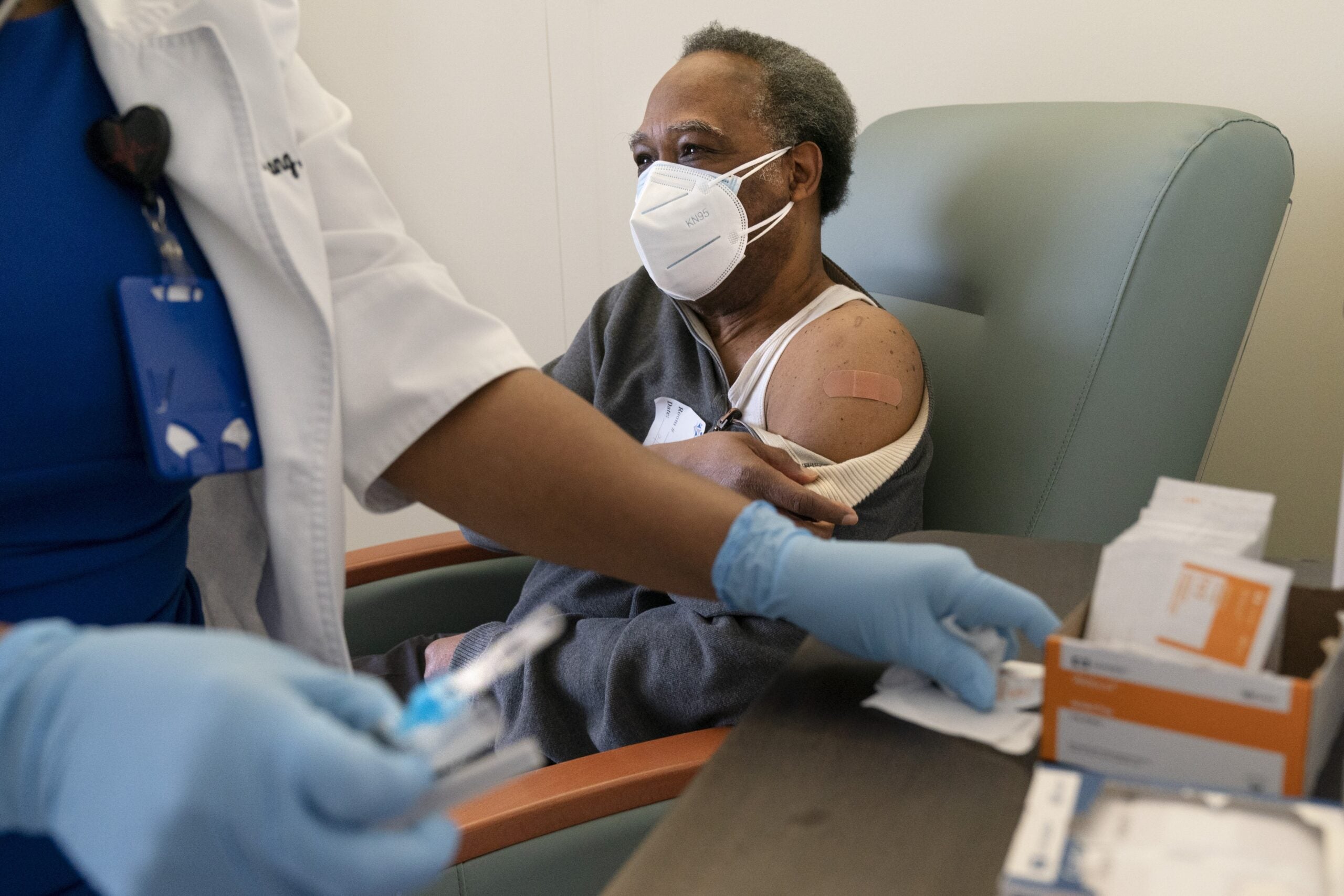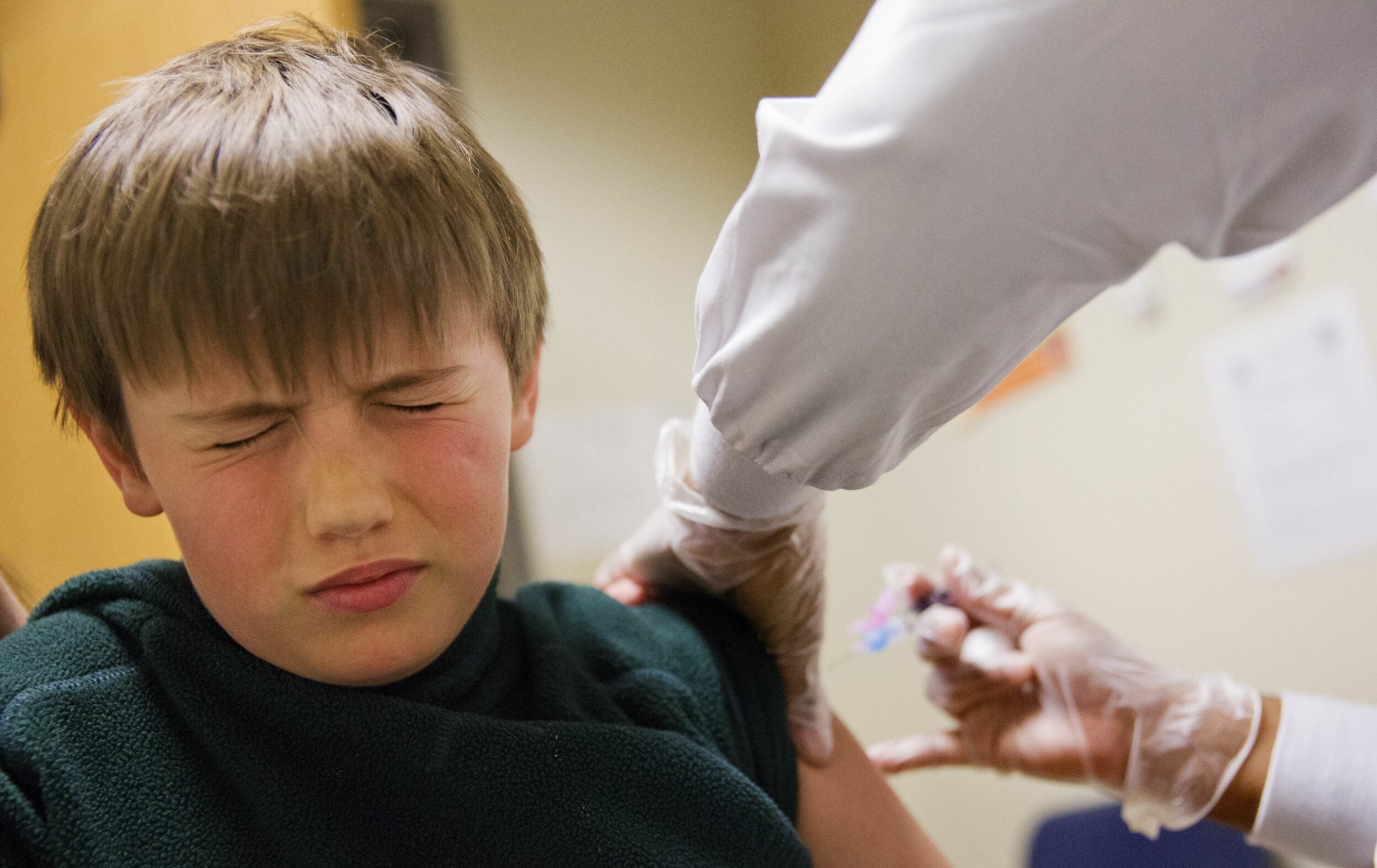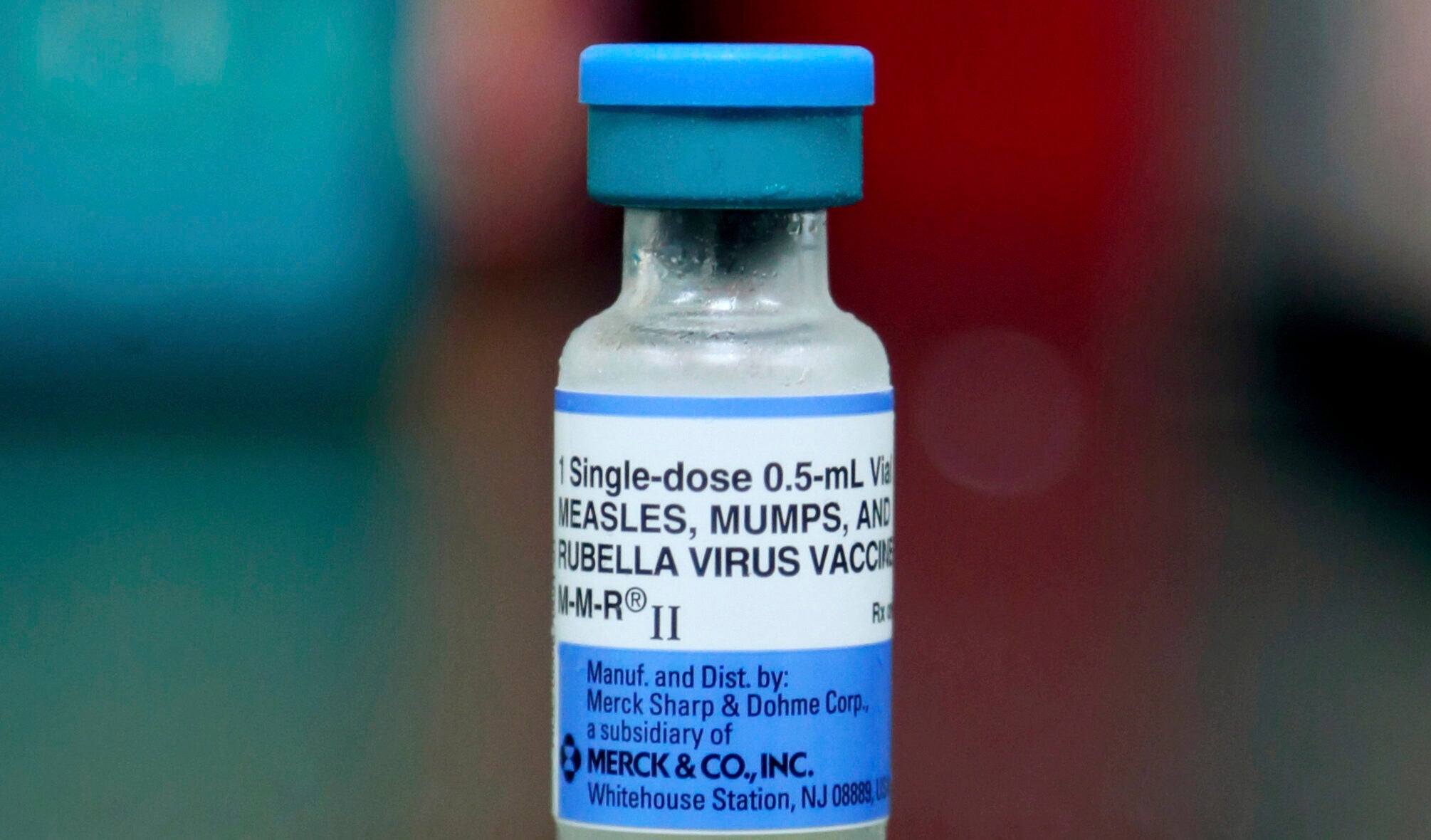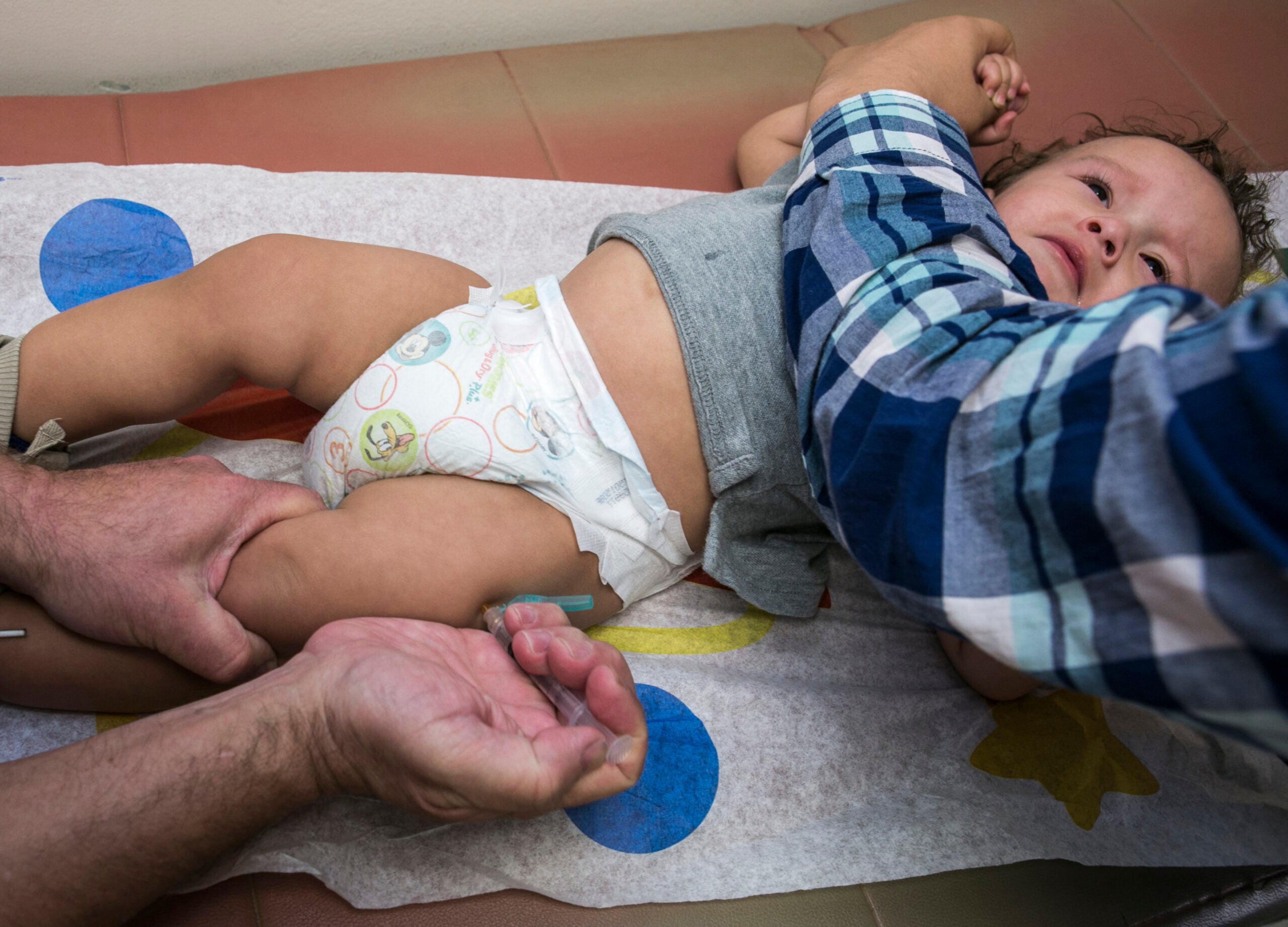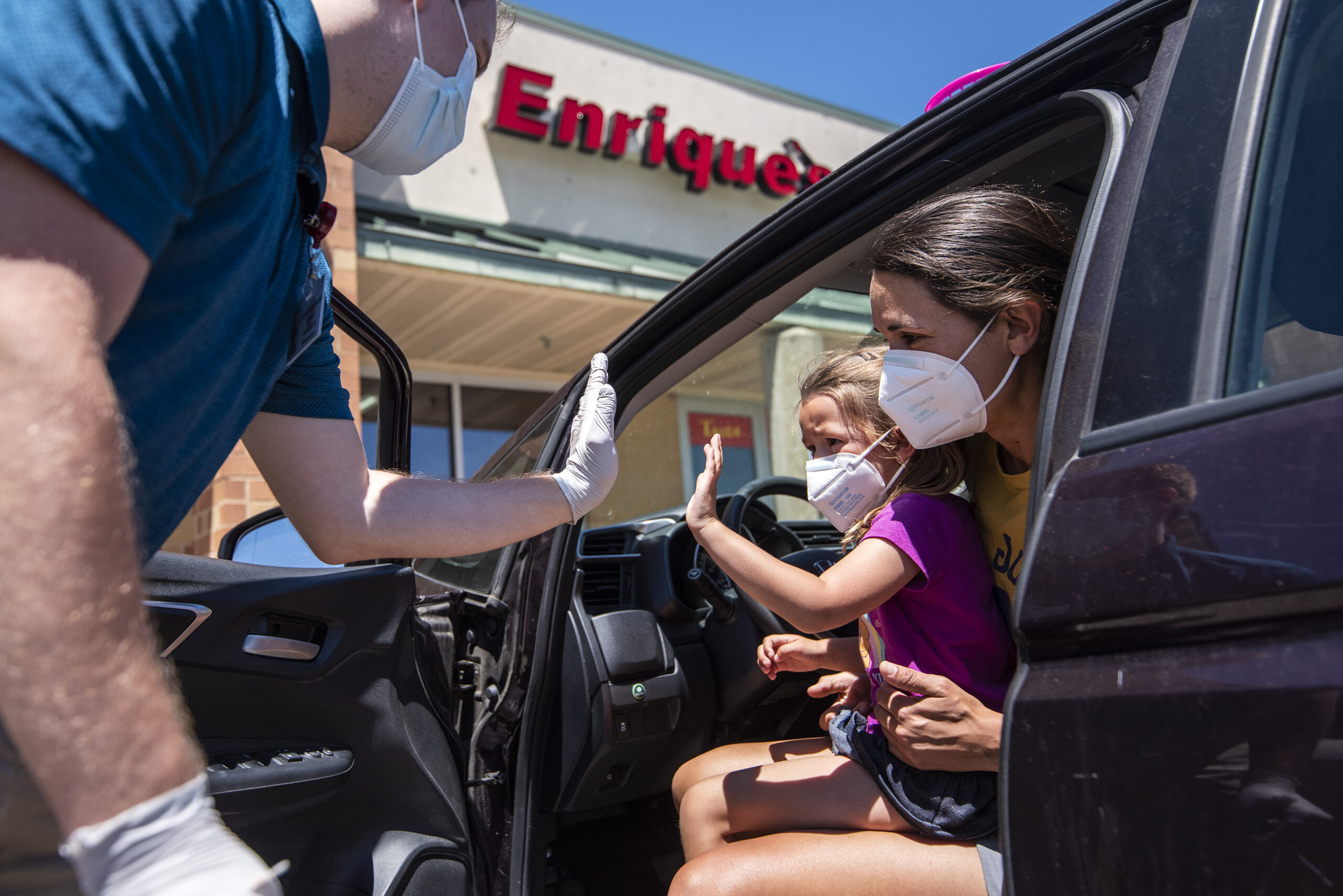Leaders in Milwaukee’s Black community say it’s access to the coronavirus vaccine, not fear, keeping people of color from getting vaccinated.
Melody McCurtis is a community organizer in Milwaukee’s Metcalfe Park Neighborhood. The neighborhood is 98 percent African American. She said a lot of people living in her community are skeptical of the vaccine but want to be vaccinated if they are able to get it.
“I feel people are using the frame of Black people aren’t taking the vaccine because of things that happened in the past, but what I’m seeing is Black people haven’t even been afforded the option to learn more about this vaccine or receive this vaccine,” McCurtis said.
Stay informed on the latest news
Sign up for WPR’s email newsletter.
Still, more than a quarter of Black adults say they’re hesitant about getting the vaccine, according to a December 2020 survey from the Kaiser Family Foundation.
Thirty-five percent of the Black adults surveyed said they probably or definitely wouldn’t get vaccinated. That’s compared to 26 percent of white adults. Black survey respondents who were wary of the vaccine said they didn’t trust vaccines in general, or they worried they might get COVID-19 from the vaccine.
McCurtis said there are moments in history, like the Tuskegee Syphilis Study, that have made Black people untrusting of the health care system. The Tuskegee study was conducted between 1932 and 1972 and left hundreds of Black men untreated for syphilis while they were told they were receiving free health care.
“I’m afraid of the vaccine, but I want the vaccine,” McCurtis said. “Our folks are tired of the conditions we are in. We are tired of living this new normal. We want the vaccine; I just don’t think it’s possible to get it.”
In Milwaukee County, 123,168 total doses of the coronavirus vaccine had been administered as of Feb. 17, according to the county dashboard. Of those, 79,300 doses went to white residents; 11,444 went to Black residents; 7,118 went to Hispanic residents; 2,876 went to Asian residents and 21,741 were listed as either non-reported or other.
Statewide, Black people have gotten about 4 percent of the 1.2 million vaccines administered, according to the Department of Health Services.
Rosemary Murphy is the director of outreach at All Saints Catholic Church on Milwaukee’s North Side, where the pastor has been promoting the coronavirus vaccination during his online homilies.
“We have experienced relatively few participants, and we serve a relatively large African American community, who don’t want the vaccine,” Murphy said.
Murphy said the city of Milwaukee, Feeding America and the Hunger Task Force have been very good about communicating where people can get the vaccine. But people are still unsure about when they can get it and how to sign up.
“I would say I’ve experienced an eagerness to make these appointments,” Murphy said.
Dr. Allison Kos is the chief medical officer at Progressive Community Health Center, a Federally Qualified Health Center (FQHC) on Milwaukee’s West Side. During a Feb. 18 interview with WPR’s “The Morning Show,” she said the way vaccines have been distributed has been complicated because of where it comes from — the state and federal government — and all the rules about when people can be vaccinated.
Beginning Feb. 15, FQHCs began directly receiving vaccine supply. Community Health Centers provide primary care services in underserved communities. Milwaukee has four FQHCs.
Kos said initially, Progressive didn’t have an adequate supply of vaccine, but since DHS prioritized vulnerable populations their vaccine requests have been fulfilled.
Kos said vaccine hesitancy definitely exists, but right now there is more confusion about access. She said getting to administer the vaccine to patients has been the one bright spot of the pandemic.
“People are incredibly grateful, people are optimistic, people are voicing just thanks and then want to voice after the vaccine has been given and then tell others,” Kos said. “The more that we can vaccinate people of color, and they can share with their communities, then the more likely we are to get more vaccinations accomplished from those who have really suffered from this disease.”
Wisconsin Public Radio, © Copyright 2025, Board of Regents of the University of Wisconsin System and Wisconsin Educational Communications Board.
